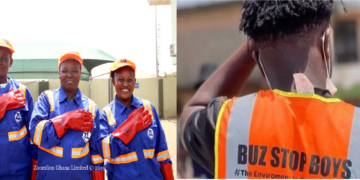
After a heavily debated issue regarding the compilation of a voters register since late December 2019, the Electoral Commission has finally scheduled tomorrow 30th June 2020 to begin its process of collecting data from eligible citizens, for the new voters register throughout the country.
Backed by the Constitution of Ghana, Article 45 quotes;
“The Electoral Commission shall have the following functions to compile the register of voters and revise it at such periods as may be determined by law….”.
Which in this case has been predetermined and now further affirmed by the recent Supreme Court ruling to be carried out.
Also, the Electoral Commission Act of 1993, Act 451 which ensures independence of the Electoral Commission quotes; “Except as provided in the Constitution or in any other law not inconsistent with the Constitution, in the performance of its functions, the Electoral Commission shall not be subject to the direction or control of any person or authority”.
This legal basis alone speaks to the level of significance that must be attached to this national activity being carried out by the Electoral Commission of Ghana, and as law abiding citizens, we are expected to corporate and participate within the new protocols that have been necessitated by the Covid-19 pandemic.
More importantly, this exercise is a delicate one in terms of the corresponding effect it bears on the authenticity of the upcoming 2020 general elections. It is in this stead that I wish to entreat all stakeholders responsible for maintaining the sanctity of the registration process, as well as the overall outcome of an improved voter’s register, to be vigilant and responsible citizens in all their actions during registrations.

It cannot be considered a shock that news reports often recount the malpractices of various persons in such compilation processes. Some of which include the registering on non-citizens in a register strictly meant for Ghanaian citizens, or the registering of unqualified persons (perhaps underage) whether as Ghanaian citizens or otherwise.
Our laws forbid such acts, and prescribe specifically in Article 42 of the Constitution—which spells out regulations for the registration of voters’—stating under the section ‘qualification for registration’ that;
- “A person who (a) is a citizen of Ghana; (b) is of 18 years of age or above; (c) is of sound mind; (d) is resident or ordinarily resident in an electoral area; and (e) is not prohibited by any law in force from registering as a voter, is entitled to have his name included in a register of voters for the electoral area during a period set aside for the registration of voters.”
Additionally, Article 42 outlines registration offences in that;
- “Any person who – (a) registers or attempts to register as a voter knowing that he is not qualified to do so; or (b) registers or attempts to register as a voter more than once at the same registration centre; or (c) registers or attempts to register as a voter at more than one registration centre in the country… commits an offence and is liable on summary conviction to imprisonment for a term not exceeding one year.”.
I, therefore, strongly caution immigrants or visiting foreigners in Ghana, those especially at the border towns to Togo, Ivory-Coast and Burkina-Faso, to respect the preserved right of Ghanaians and resist anyone who wishes to coerce them into registering in this new voters’ register.
Even so, the law is explicit on serving justice to violators of Article 42, of the 1992 Constitution and we must all apprise ourselves of its contents in order to act consciously throughout the registration exercise.
That being said, I wish to encourage all eligible Ghanaians to come out and exercise their right to register in the new voters’ register for which significant resources have been carefully allocated, all in benefit of this great democratic nation.

















